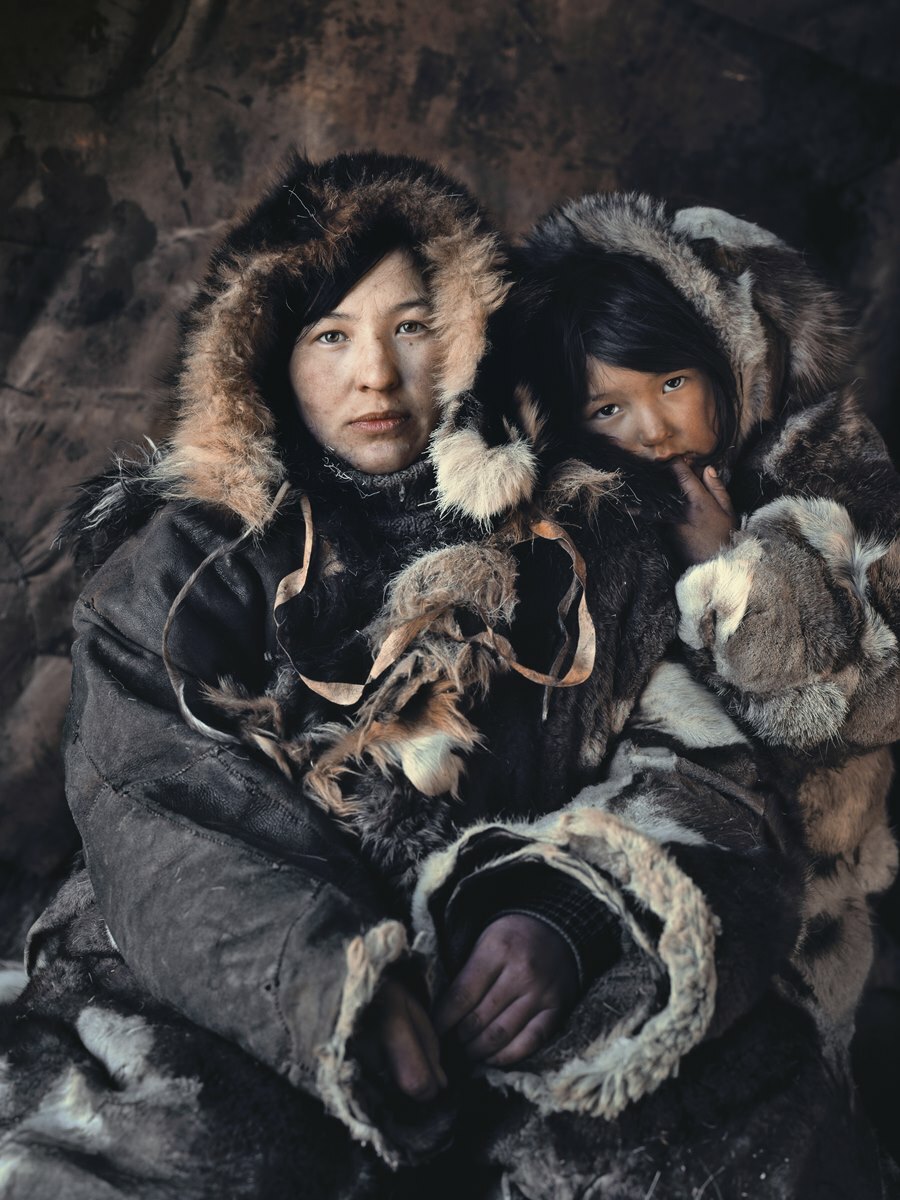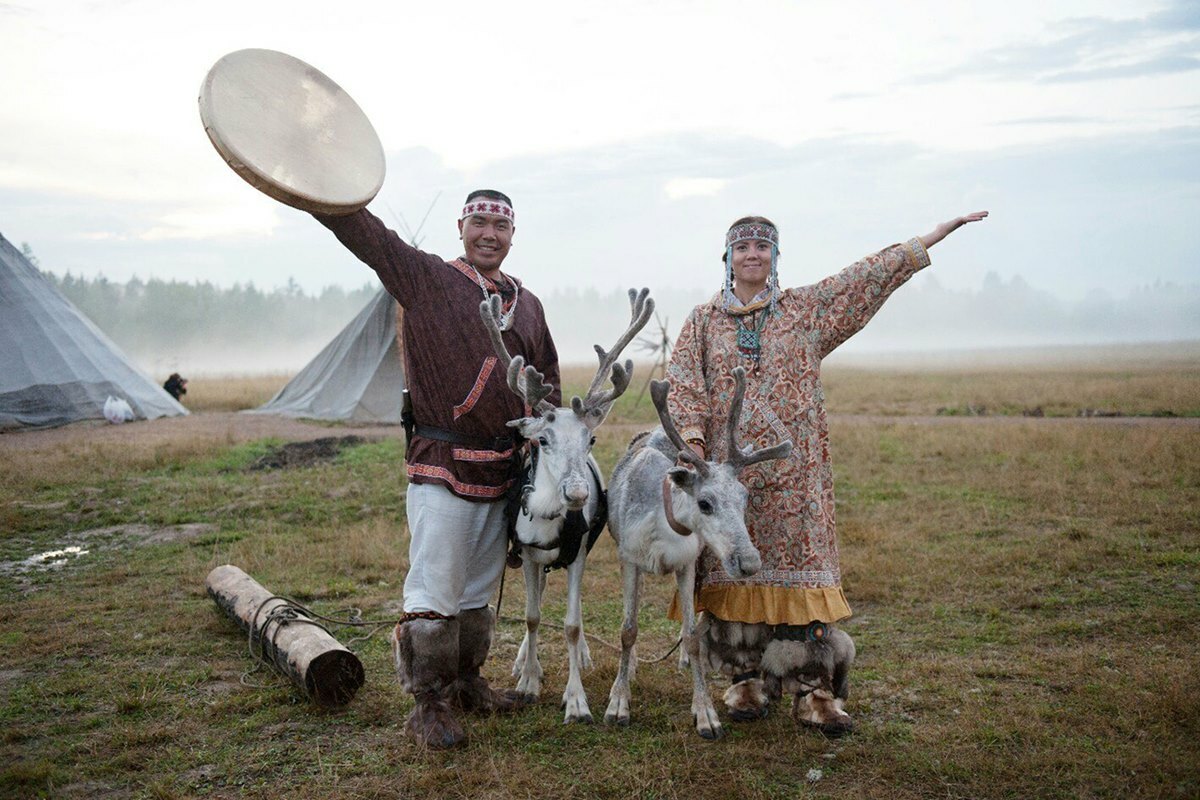The tribe is willing to help strangers
RUSSIA The Chukchi tribe helps strangers with shelter and food, despite living in the harsh natural conditions of the Siberian tundra.
Chukchi or Chukchee are tribes living on the Chukotka Peninsula, an autonomous region in northeastern Siberia. This is the region with the harshest natural conditions in Russia. In winter, temperatures can drop to -50 degrees Celsius, due to winds blowing in from the Arctic Ocean and the Bering Sea. Currently the population of the tribe is about 150,000 people.
The Chukchi people lived in the tundra before the Christian period. They call themselves Luoraveti, meaning true people. Unlike other indigenous groups in Siberia, Chukchi was not overpowered by the army in the 17th century. Until the 1930s, the tribe had to join state-controlled economic collectives. Their lives and cultures have since recorded many changes.

Chukchi living conditions
Traditionally, Chukchi is divided into two main groups by occupation, living in the peninsula and living along the coast. Inland Chukchi live in the form of nomads, reindeer blankets and live in tents. They relocate based on the growth of pastures, and get food for the cattle. A group of people living on the coast do hunt seals, whales, walruses and sea lions.
Traditional Chukchi family reindeer blanket is yaranga, cone-shaped or round. Inside the bedroom is a bed made of animal hair for many people. Today, they have gradually abandoned tents to live in one-story bungalows and old apartment buildings. Traditionally, the Chukchi people used dog sleds, reindeer and leather boats to transport goods. In parallel with the traditional mode of transportation, people have added motorized boats and sleds.
The main foods of the Chukchi people are boiled venison, secreted soup, brain and reindeer bone marrow. People in coastal areas often eat boiled seal meat, whale meat, seaweed. There are also frozen fish and tree roots. With a more modern life, food has been added with vegetables, canned meat, bread and processed foods.
In the past, the tribe had no access to medicine, due to the lack of medicinal plants and minerals. The Chukchi people do not have an immune system so they are very susceptible to smallpox and influenza. Their average life expectancy is 45 years.
Tribal cultural life
Due to the harsh climate and difficult life of the tundra, community members must depend on and help each other. Hospitality and generosity are qualities that are highly appreciated by the Chukchi people. They are not allowed to refuse to help others, even those who are strangers, who are struggling with accommodation and food shortages. The community will take care of orphans, widows and the poor. Stinginess, selfishness are considered to be the worst for them.
In the family, men do jobs such as hunting, fishing, collecting firewood. And women clean, repair yaranga tents, cook, sew, repair clothes. Chukchi children today go to primary and secondary boarding schools. In addition to the traditional language, they learn to read and write in Russian.

Traditional Chukchi clothing is kerker, a knee-length cape made of reindeer skin, fox fur, and wolf. Women have more gown-like dresses, decorated with beads, embroidery and fur trim. Both sexes wear high heels and leather underwear.
People develop folk art forms sculpted and carved on animal bones. The traditional themes are scenes of everyday life such as hunting, reindeer herding, and peninsular animals. However, only men do sculpture work, and women sew and embroider.
The Chukchi believe that animals, plants, celestial bodies, rivers and forests all have their own souls. They created folk legends about creating the earth, moon, sun and stars. Some stories about evil spirits that cause illness and unhappiness.
Every year, the tribe organizes rituals, letting the mage talk to the spirits and predict the future. In addition, summer and autumn sacrifices are performed by Chukchi waters and reindeer shepherds.
Today, more and more people leave the tribe to settle in towns and find jobs and houses. Their lifestyles are also threatened by exploitation problems and industrial pollution. According to the latest statistics in 2015, only about 1,000 caribou herders maintained the traditional lifestyle.
- People living in the 'safest' places in the world
- The 'fairy' once tricked author Sherlock Holmes
- The code led the British to hunt down 'golden rabbit treasures' 40 years ago
- The 'glass princess' was always afraid of crumbling in 19th-century Europe
- A series of pictures of anatomy with a dark past in Nazi Germany
FIDITOUR TRAVEL COMMUNICATION COMPANY
Representative: Mr. Tran Van Long - Chairman and General Director
Head office: 95B-97-99 Tran Hung Dao, District 1, City. Ho Chi Minh.
Hanoi Branch: 66 Tran Hung Dao, Hoan Kiem District, Hanoi
Phone: 028 730 56789 | Hotline: 19001177